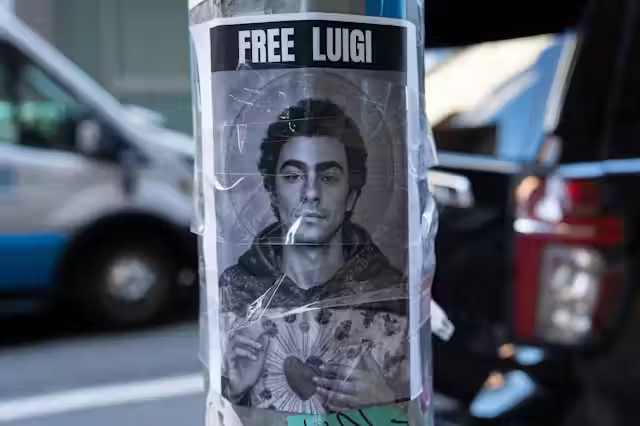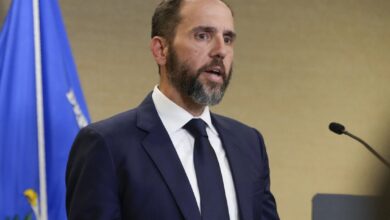Crowdfunding Campaign for CEO Murder Suspect Surpasses $100,000
In an unexpected turn of events, a crowdfunding campaign set up to support Luigi Mangione, accused of assassinating UnitedHealthcare CEO Brian Thompson, has amassed over $100,000.

In an unexpected turn of events, a crowdfunding campaign set up to support Luigi Mangione, accused of assassinating UnitedHealthcare CEO Brian Thompson, has amassed over $100,000. This financial support, aimed at covering legal expenses for Mangione’s defense, has sparked a nationwide debate on justice, corporate responsibility, and the ethics of public fundraising for legal defense in criminal cases.
The Incident and Charges
On December 4th, Luigi Mangione allegedly carried out a calculated attack against Brian Thompson, resulting in Thompson’s death. Mangione now faces serious charges, both at the state and federal levels. If convicted under federal charges, he could face the death penalty, a possibility that has intensified the scrutiny around his case. The motive, as presented by the prosecution, points to Mangione’s deep-seated resentment towards UnitedHealthcare, attributing personal hardships to the company’s practices.
The Crowdfunding Effort
The campaign, hosted on the platform GiveSendGo under the name “December 4th Legal Committee”, has been shrouded in controversy. Donors, many of whom remain anonymous, have contributed to what they describe as a fight against corporate tyranny. The campaign’s description emphasizes Mangione as a “victim of systemic corporate abuse”, though it carefully avoids explicitly endorsing his alleged actions. This narrative has resonated with a segment of the public, leading to significant financial support.
Public Reaction and Ethical Debate
The public’s reaction has been polarized. On one side, there are those who view Mangione’s case through the lens of corporate accountability, seeing the funds as a necessary means to ensure he receives a fair trial against what they perceive as an overreaching corporate influence. Social media platforms have seen an influx of support, with hashtags like #JusticeForLuigi trending, highlighting narratives of corporate greed and personal vendettas.
Conversely, critics argue that supporting someone accused of murder, especially in such a public and high-profile manner, undermines the principle of justice. They question the morality of crowdfunding for defense in cases where the accused’s actions have led to such grave outcomes. Legal experts have weighed in, noting the potential for such campaigns to influence judicial proceedings or public opinion, potentially biasing jury pools.
The Broader Implications
This case raises several ethical questions about the use of crowdfunding for legal defense. While crowdfunding has traditionally been a tool for the underrepresented to seek justice, its application in cases of violent crime challenges societal norms on culpability, retribution, and forgiveness. It also prompts a reevaluation of how society views white-collar versus violent crime, the roles of corporate leaders, and the extent to which individuals should be held accountable for systemic issues.
Additionally, the situation underscores the power of narrative in public opinion. How Mangione’s story is framed—as either a David versus Goliath tale or a straightforward criminal act—could influence not just the outcome of his trial but also future cases where public perception plays a significant role.
Conclusion
As the legal saga continues, the crowdfunding campaign for Luigi Mangione’s defense remains a focal point of debate. It serves as a stark reminder of the complexities at the intersection of law, public sentiment, and justice. Whether this financial support will sway the scales in Mangione’s favor or merely complicate an already contentious case remains to be seen. What is clear, however, is that this incident has reignited discussions on corporate accountability, the ethics of fundraising, and the very nature of justice in a modern, interconnected world.




